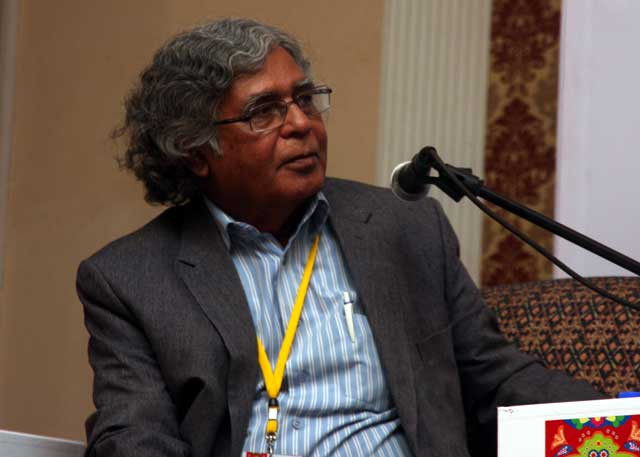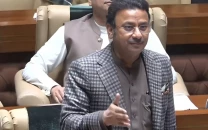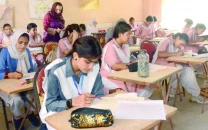Self-critique: Making sense of today’s media
Session titled ‘Words and Images of the Day’ dissects 21st century journalism

Columnist Ghazi Salahuddin. PHOTO: EXPRESS/ ATHAR KHAN
Salahuddin was moderating the session, which included Indian journalist Barkha Dutt, French novelist and journalist Olivier Truc, and Financial Times’ correspondent in Pakistan Farhan Bokhari. No explanation was offered for the missing panellist, Newsweek Pakistan editor and director of Associated Group, Fasih Ahmed. As the session’s title suggested, the discussion hovered around modern-day journalism vis-à-vis changes in technology.
Responding to Salahuddin’s comment that sensationalist media has not been part of the solution [in Pakistan and India], Truc admitted the even the media in Europe sensationalises news. He however disagreed that it is not part of the overall problem in the West.
Stand against impunity: Editors for Safety formed to unite media against attacks
Talking about the media’s role in India, Dutt said the format where people with extreme views are pitted against one another for higher ratings is condemnable. “News has become theatre,” is how she described it. Dutt explained the phenomenon by saying that the more outrageous the article, the higher the hits on the website, thus ensuring high popularity. She also blamed the news consumers for the entire mess. “Even if you’re making fun of the channel, you’re still watching it and thus promoting it,” she said.
Bokhari suggested that the state of media affairs requires some sort of regulation, to which Dutt said there should only be self-regulation as in India and no interference from the government. Bokhari then clarified that Pakistani media does not practice self-regulation but agreed that the government should not have a role in determining what is or is not news.
Discussing the evolution of media, Dutt said first the newspapers adjusted when television channels were opened up, and now the channels are adapting to the advent of internet-driven social media. “Mainstream media is being challenged like never before,” she said, explaining that today, anyone with a smartphone and an internet connection is a potential journalist.
Media advocacy campaign: ‘Pur Azm’ to challenge gender violence
Salahuddin asked the panel to explain why, despite a global reduction in newspapers’ circulation, print readership was not dwindling in India and China. Dutt explained the trend in India by saying that the size of the market helps, as well as the popularity of regional media.
Talking about the decline of print media and popularity of digital news, Truc, who works for French newspaper Le Monde, said “the global audience of Le Monde has increased while the print readership has gone down,” adding that the paper’s print readership stands at 300,000 while the online readers reach five to six million.
When Dutt, who seemed to have unwantedly hijacked the question-answer session owing to her celebrity status, was asked to comment on the media’s ‘obsession with negative news’, she said “We are not public relations people, we [journalists] will show things the way they are,” in a mix of Urdu and English.
Answering another question on bad apples in the media, Dutt claimed no profession in the world where everyone is good and noble. “The media is still evolving…Competition has led to a decline in quality in both countries,” she answered.



















COMMENTS
Comments are moderated and generally will be posted if they are on-topic and not abusive.
For more information, please see our Comments FAQ